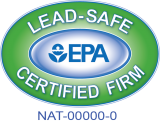The Dangers of Flood-Damaged Windows
The damage caused by Hurricane Harvey can’t be overstated. Many South Texas residents are still dealing with the aftermath of rebuilding and returning to a sense of everyday normalcy. It’s common to focus on rebuilding larger items, like flooring and automobiles, but smaller items, such as flood-damaged windows, can be problematic as well. How do you know if you need to replace your windows, especially if they’re still working? Here are some of the dangers of flood-damaged windows and what you need to know about replacing them.
How Moisture Damages Your Windows
Exterior damage to the window and frame may be the most obvious concern, but moisture trapped inside the window due to a seal leak can also be troublesome. Floodwaters are often dirty and contaminated with different kinds of bacteria. As water travels through the cracks and crevices in your window frame, it can easily get trapped in unseen areas, resulting in mold and mildew growth.
The health concerns presented by trapped moisture and mold growth are many. In addition to general respiratory irritation, mold can have serious implications for people with compromised immune systems, asthma or allergies. Floods and mold go hand in hand, unfortunately, so it’s best to be wary of all the ways mold can invade your home after a flood.
Double-pane windows are at high risk for mold growth after a flood. Floodwaters often get trapped between the panes, and over time, lead to bacterial growth and the potential for mold and mildew. Identifying leftover moisture in your windows after a flood can drastically reduce the health risks associated with mold and mildew.
There are a few things you can look for to identify excessive moisture trapped in your windows, such as condensation appearing between the glass panes and mold or mildew growing on the window itself. Unfortunately, it can take anywhere from a couple weeks to a year for these types of symptoms to present themselves. Be sure to keep a watchful eye on affected windows even long after the floodwaters have subsided.
Other Possible Window Damage
It’s also important to examine any exterior damage to the window caused by flooding when deciding whether it needs replacing. Certain types of windows are affected by storms in different ways, so what kind of windows you have will likely determine the action you should take.
Vinyl Windows – Vinyl windows themselves often perform best when it comes to repelling water damage, but their internal components, most notably the balancer, are very susceptible to water damage like rust and trapped moisture. The balancer is located on the inside of the window. It’s a small piece of metal that helps the window remain in place when open. If it becomes submersed in water, you could see issues with the functionality of your window down the road.
Wood Windows – Real wooden windows are very susceptible to the negative effects of flooding. It only takes about 30 seconds for wooden windows to swell up and become inoperable. If the window is protected by aluminum cladding, water can get trapped between the cladding and wood, creating the chance the window never fully dries and eventually rots or develops harmful mold.
Aluminum Windows – Aluminum windows, like vinyl, also fare well during storms and flooding. Most homes built before 1995 were made with aluminum windows. There’s still a risk of structural issues, like with the balancer problems listed above. If your home has been subject to excessive flooding, you should consider replacing your windows even if they don’t outwardly appear to be damaged due to the possibility of trapped moisture in between panes or within the window structure.
Window Replacement and Siding Replacements
Navigating the post-hurricane rebuilding process can be daunting. If your rebuild process involves replacing your windows, consider working with the trusted professionals at Allied Siding and Windows. As a business based in South Texas, we understand the importance of installing windows that are leak resistant and made to last, even during the harshest of gulf storms. Contact us for a free estimate by calling (713) 946-3697.










